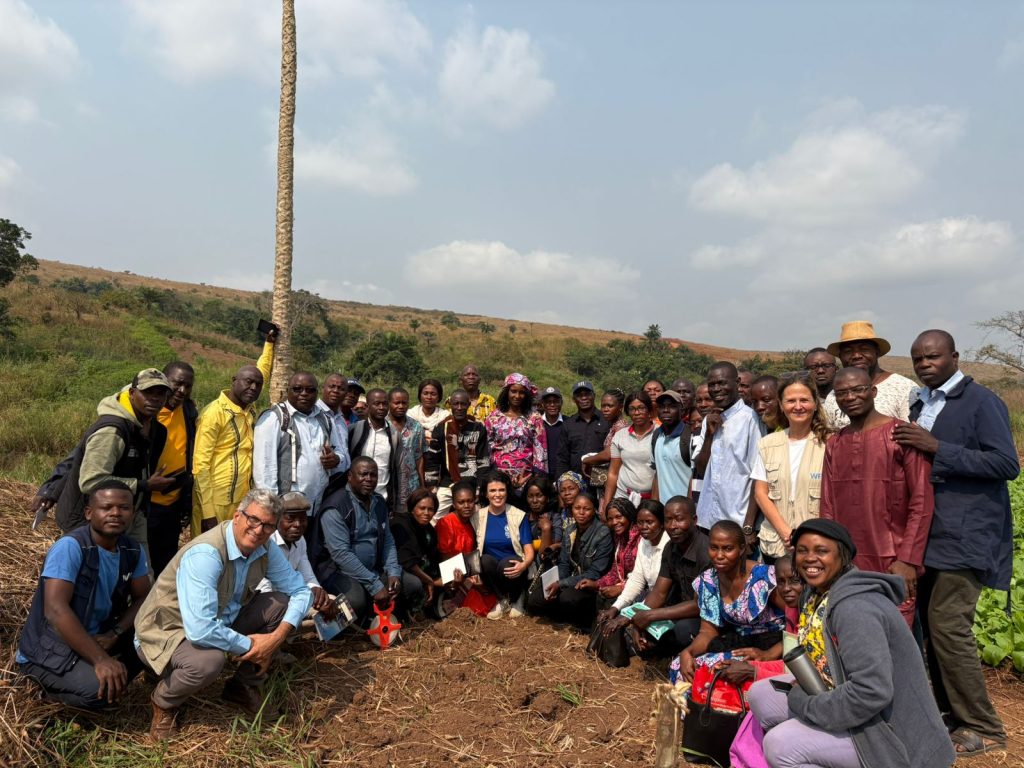
As part of the Seeds for Tomorrow project, two strategic workshops were held on 29 and 30 July 2025 in Mouyondzi, in the Bouenza department, aiming to strengthen sustainable agricultural practices and enhancing rural management and administration in the Republic of Congo.
Led by Marenilson Batista da Silva, a researcher at Embrapa and Director of Technical Assistance and Rural Extension (ATER) at the Ministry of Agrarian Development of Brazil, the sessions marked a key milestone in the project’s implementation phase.
“This project opens opportunities to strengthen family farming beyond school feeding programmes. I believe the Republic of the Congo has the conditions and potential to increase food production through agriculture,” he stated.
The workshops brought together government representatives at national, departmental, and district levels, as well as farmers who participated in the project’s pilot activities in the departments of Bouenza, Pool and Plateaux.
Cassava at the heart of the training
Adapted to the agricultural and socio-economic context of the Republic of Congo, the workshops focused on cassava – a crop central to national food security and accounting for around 80% of the country’s agricultural production. Cassava is especially valued for its resilience to varying soil fertility conditions.
‘Participants benefited from a mix of theoretical and practical training, covering fundamental topics such as soil management, use of the metric system, post-harvest handling, and biofertilizer production.On the second day, farmers engaged directly in producing a biofertilizer and practicing soil preparation techniques,” explained Maria Giulia Senesi, Programme Officer at the WFP Centre of Excellence who supported the workshops.
This hands-on component proved essential for promoting sustainable alternatives to chemical inputs, helping reduce farmers’ reliance on costly external resources. On the topic of rural management, participants were introduced to the importance of systematic record-keeping of farm income and expenses, and the need to standardize units of measurement in agricultural trade to avoid pricing distortions.
“The exchange of knowledge between the participants and the Brazilian ATER representative demonstrated the similarities in agricultural production in both countries, as well as the relevance of South-South cooperation in Congo. The workshop methodology ensured that all participants engaged actively in the training,” highlighted Nadia Goodman, project coordinator.
About the Project
Seeds for Tomorrow is an initiative of the WFP Centre of Excellence against Hunger in Brazil, in partnership with the Government of the Republic of Congo, the Government of Brazil, WFP Republic of Congo, and the United Nations Office for South-South Cooperation (UNOSSC). The project is funded by the IBSA Fund (India, Brazil and South Africa Facility for Poverty and Hunger Alleviation).




